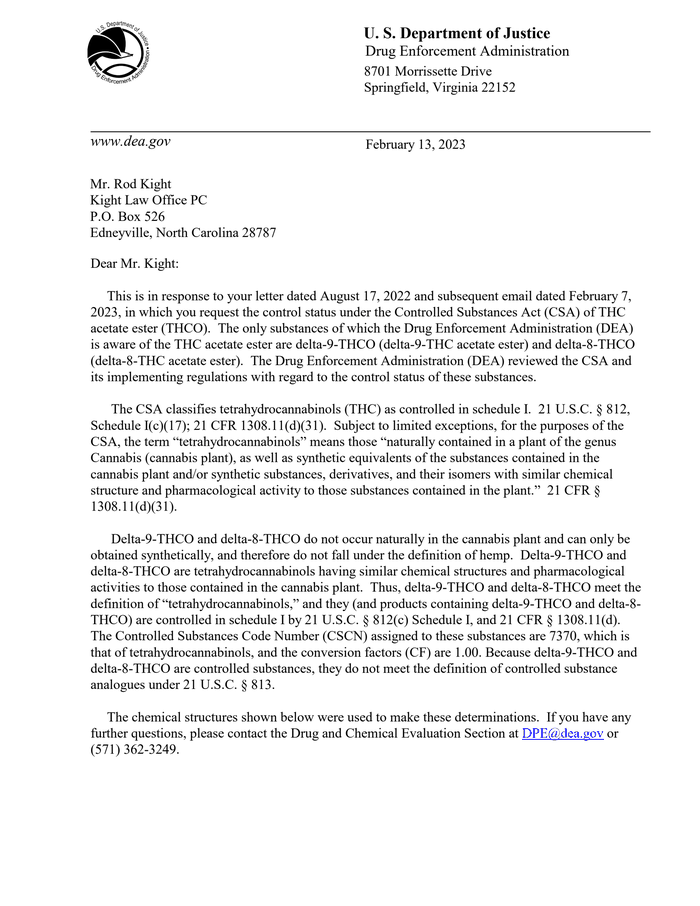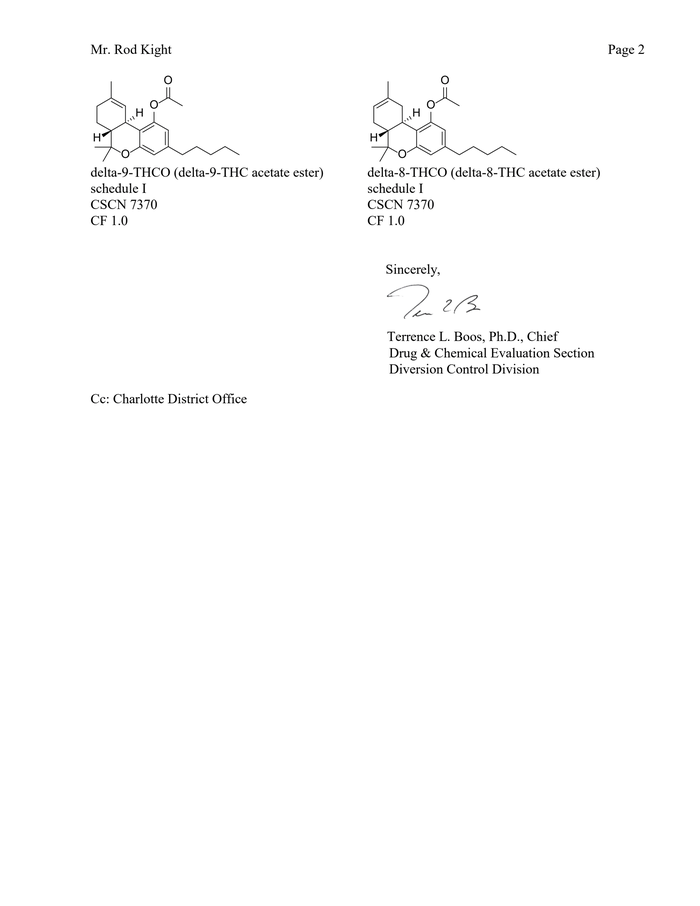
Sep 14, 2020 | Federal Laws, News
The IRS has a web page for marijuana business owners to pay their taxes. But first…
CCE in Michigan
Marijuana is still a controlled substance schedule 1 in Michigan even though the people voted to legalize it. There is a reason for that some will learn soon enough. Anyhow… The State and the IRS have conspired and Joined the CCE to take their cut.
A CCE in Michigan is a 20 year felony. If you’ve ever been threatened by a prosecutor for a CCE don’t be mad… it is what it is…right…? The times they are a changing…right?
But wait there’s more… prosecutors have to throw racketeering and conspiracy on there too as well as whatever else they can throw against the wall to see what sticks…and you… well you have to defend yourself and the more charges the more you have to pay to defend yourself. It’s a war of attrition and the prosecutors have unlimited funds.
Here’s one of The Law In Michigan
750.159i Prohibited conduct.
Sec. 159i. (1) A person employed by, or associated with, an enterprise shall not knowingly conduct or participate in the affairs of the enterprise directly or indirectly through a pattern of racketeering activity. (2) A person shall not knowingly acquire or maintain an interest in or control of an enterprise or real or personal property used or intended for use in the operation of an enterprise, directly or indirectly, through a pattern of racketeering activity. (3) A person who has knowingly received any proceeds derived directly or indirectly from a pattern of racketeering activity shall not directly or indirectly use or invest any part of those proceeds, or any proceeds derived from the use or investment of any of those proceeds, in the establishment or operation of an enterprise, or the acquisition of any title to, or a right, interest, or equity in, real or personal property used or intended for use in the operation of an enterprise. (4) A person shall not conspire or attempt to violate subsection (1), (2), or (3).
Here’s some more detail for Michigan CCE
CCE Federally
Sometimes known as The Kingpin Statute or the Continuing Criminal Enterprise Statute (CCE) is a federal law, which is focused on persons who may be considered “drug lords” or maintain a supervisory role in drug trafficking on a substantial basis. The CCE statute usually targets organized crime or drug “kingpins.”
Continuing Criminal Enterprise Defined in 21 U.S.C. 848, (gender specific)
(a)Penalties; forfeitures
Any person who engages in a continuing criminal enterprise shall be sentenced to a term of imprisonment which may not be less than 20 years and which may be up to life imprisonment, to a fine not to exceed the greater of that authorized in accordance with the provisions of title 18 or $2,000,000 if the defendant is an individual or $5,000,000 if the defendant is other than an individual, and to the forfeiture prescribed in section 853 of this title; except that if any person engages in such activity after one or more prior convictions of him under this section have become final, he shall be sentenced to a term of imprisonment which may not be less than 30 years and which may be up to life imprisonment, to a fine not to exceed the greater of twice the amount authorized in accordance with the provisions of title 18 or $4,000,000 if the defendant is an individual or $10,000,000 if the defendant is other than an individual, and to the forfeiture prescribed in section 853 of this title.
(b)Life imprisonment for engaging in continuing criminal enterprise
Any person who engages in a continuing criminal enterprise shall be imprisoned for life and fined in accordance with subsection (a), if—(1)such person is the principal administrator, organizer, or leader of the enterprise or is one of several such principal administrators, organizers, or leaders; and
(2) (A)the violation referred to in subsection (c) (1) involved at least 300 times the quantity of a substance described in subsection 841(b)(1)(B) of this title, or
(B)the enterprise, or any other enterprise in which the defendant was the principal or one of several principal administrators, organizers, or leaders, received $10 million dollars in gross receipts during any twelve-month period of its existence for the manufacture, importation, or distribution of a substance described in section 841(b)(1)(B) of this title.
(c)“Continuing criminal enterprise” definedFor purposes of subsection (a), a person is engaged in a continuing criminal enterprise if—(1)he violates any provision of this subchapter or subchapter II the punishment for which is a felony, and
(2)such violation is a part of a continuing series of violations of this subchapter or subchapter II—(A)which are undertaken by such person in concert with five or more other persons with respect to whom such person occupies a position of organizer, a supervisory position, or any other position of management, and
(B)from which such person obtains substantial income or resources.
(d)Suspension of sentence and probation prohibited
In the case of any sentence imposed under this section, imposition or execution of such sentence shall not be suspended, probation shall not be granted, and the Act of July 15, 1932 (D.C. Code, secs. 24–203—24–207), shall not apply.
(e)Death penalty
(1)In addition to the other penalties set forth in this section—(A)any person engaging in or working in furtherance of a continuing criminal enterprise, or any person engaging in an offense punishable under section 841(b)(1)(A)[1] of this title or section 960(b)(1)[1] of this title who intentionally kills or counsels, commands, induces, procures, or causes the intentional killing of an individual and such killing results, shall be sentenced to any term of imprisonment, which shall not be less than 20 years, and which may be up to life imprisonment, or may be sentenced to death; and(B)any person, during the commission of, in furtherance of, or while attempting to avoid apprehension, prosecution or service of a prison sentence for, a felony violation of this subchapter or subchapter II who intentionally kills or counsels, commands, induces, procures, or causes the intentional killing of any Federal, State, or local law enforcement officer engaged in, or on account of, the performance of such officer’s official duties and such killing results, shall be sentenced to any term of imprisonment, which shall not be less than 20 years, and which may be up to life imprisonment, or may be sentenced to death.
(2)As used in paragraph (1)(B), the term “law enforcement officer” means a public servant authorized by law or by a Government agency or Congress to conduct or engage in the prevention, investigation, prosecution or adjudication of an offense, and includes those engaged in corrections, probation, or parole functions.(g) [2] to (p) Repealed. Pub. L. 109–177, title II, § 221(2), Mar. 9, 2006, 120 Stat. 231(q)Repealed. Pub. L. 109–177, title II, §§ 221(4), 222(c), Mar. 9, 2006, 120 Stat. 231, 232(r)Repealed. Pub. L. 109–177, title II, § 221(3), Mar. 9, 2006, 120 Stat. 231(s)
Special provision for methamphetamine
For the purposes of subsection (b), in the case of continuing criminal enterprise involving methamphetamine or its salts, isomers, or salts of isomers, paragraph (2)(A) shall be applied by substituting “200” for “300”, and paragraph (2)(B) shall be applied by substituting “$5,000,000” for “$10 million dollars”.
So the IRS will take your money – They will even take cash because you can’t bank because it is still considered an illegal business. Here are their instructions.
Hopefully they will spend it wisely… or not.
Enter… the IRS
A key component in promoting the highest degree of voluntary compliance on the part of taxpayers is helping them understand and meet their tax responsibilities while also enforcing the law with integrity and fairness to all. This article provides general guidance including frequently asked questions for taxpayers in the marijuana industry.
I.R.C. § 280E and the Marijuana Industry
Businesses that traffic marijuana in contravention of federal or state law are subject to the limitations of Internal Revenue Code (IRC) Section 280E. The Marijuana Industry FAQs, linked below, address federal tax filing and information report requirements specific to taxpayers in this industry.
Income Reporting
Income from any source is taxable and taxpayers are generally required to file a tax return to report that income to the IRS. Many marijuana-industry businesses conduct transactions in cash, which need to be reported, like any other form of payment. See Publication 334, Tax Guide for Small Business, for more details.
Cash Payment Options
Cash payment options are available for unbanked taxpayers. Some IRS Taxpayer Assistance Centers accept cash. Call 844-545-5640 for a location near you to schedule an appointment. Publication 5435 (PDF) provides additional details about cash payment options.
Large Cash Amounts
Any person in a trade or business who receives more than $10,000 in cash in a single transaction or in related transactions must file Form 8300 (PDF), Report of Cash Payments Over $10,000 Received in a Trade or Business, within 15 days after receiving payment.
Estimated Payments
Small business taxpayers often need to make quarterly estimated tax payments to cover their tax obligation. Form 1040-ES, Estimated Tax for Individuals, will help to figure these payments. IRS Direct Pay is the fastest and easiest way to make these payments. The Treasury Department’s (EFTPS) system is also an option.
Records
Good records assist in monitoring a business’s progress, tracking deductible expenses and can substantiate items reported on tax returns. A good recordkeeping system includes a summary of all business transactions. Generally, it is best to record transactions daily.
More Information
- Marijuana Industry FAQs
- Paying Your Taxes
- What to Expect When You Pay Cash at an IRS Office
- Pay Your Taxes with Cash
- Publication 5435, Need to pay your taxes in cash? (PDF)
- Publication 5435A, Need to pay your taxes in cash? There are different ways to pay (PDF)
- Publication 5436, Large Cash Payments What to Expect (PDF)
- Publication 5436-A, Paying in Cash at an IRS Taxpayer Assistance Center? (PDF)
- Cash Payments to the IRS over $10,000 FAQs
- Publication 5250, How to Pay Taxes with Cash at a Retail Partner (PDF)
- Form 8300, Report of Cash Payments Over $10,000 Received In a Trade or Business (PDF)
- Cash Intensive Businesses Audit Techniques Guide – Table of Contents
- Electronic Federal Tax Payments System (EFTPS)
- Debit, Credit Card or Digital Wallet
- Virtual Currencies
- Internal Revenue Code (IRC) Section 280E
- Small Business and Self-Employed Tax Center
- Publication 583, Starting a Business and Keeping Records
LINKS
IRS – Marijuana Industry Page
IRS – Marijuana Industry Frequently Asked Questions
Starting A Cannabis Business? You will require legal guidance
Komorn Law provides legal guidance and consultation to those interested in Cannabis businesses.
Call Our Office 248-357-2550 or Google Komorn Law and do your research.
Komorn Law Social Media
Recent Posts
Tag Cloud
2nd amendment
2020
2021
BMMR
cannabis
CBD
corruption
corruption. prosecutors
CRA
dispensary
Driving
DUI
expungement
federal
forfeiture
ginnifer hency
gun rights
guns
hemp
Know Your Rights
komornlaw
Komorn Law Victories
lara
law enforcement abuse
laws
legal
Legalization
marijuana
Medical Marijuana
Michigan
michigan laws
michigan news
MMFLA
MMMA
MRA
news
police
politics
Recreational Cannabis
science
shattuck
supreme court
usa news
us supreme court
Your Rights
DISCLAIMER
This post may contain re-posted content, opinions, comments, ads, third party posts, outdated information, posts from disgruntled persons, posts from those with agendas and general internet BS. Therefore…Before you believe anything on the internet regarding anything do your research on Official Government and State Sites, Call the Michigan State Police, Check the State Attorney General Website and Consult an Attorney.

Sep 14, 2020 | Federal Laws
NARCOTICS AND MARIHUANA. To amend the Internal Revenue Code of 1954 and the Narcotic Drugs Import and Export Act to provide for a more effective control of narcotic drugs and marihuana, and for other related purposes. … this Act may be cited as the “Narcotic Control Act of 1956.”
Traffic in narcotics, barbiturates and amphetamines in the United States
Sections
A. NARCOTICS AND MARIHUANA
B. BARBITURATES AND AMPHETAMINES
Details
Pages: 19 to 24
Creation Date: 1956/01/01
In order to round off the presentation of recent United States efforts against the abuse of narcotic drugs, the Bulletin publishes hereby the main sections of a statute dealing with narcotics and marihuana, and of a bill, both introduced by the Hon. Hale Boggs, Chairman of the Sub Committee on Narcotics, of the Committee on Ways and Means of the House of Representatives of the United States Congress.
PUBLIC LAW 728-84TH CONGRESS
CHAPTER 629-2ND SESSION
H.R. 11619
AN ACT
To amend the Internal Revenue Code of 1954 and the Narcotic Drugs Import and Export Act to provide for a more effective control of narcotic drugs and marihuana, and for other related purposes.
… this Act may be cited as the “Narcotic Control Act of 1956.”
Title I-Amendments to the 1954 Code, the Narcotics Drugs Import and Export Act, etc.
SEC. 101. UNLAWFUL ACQUISITION, ETC., OF MARIHUANA
Subsection ( a) of section 4744 of the Internal Revenue Code of 1954 (unlawful acquisition of marihuana) is amended to read as follows:
(a)PERSONS IN GENERAL.-It shall be unlawful for any person who is a transferee required to pay the transfer tax imposed by section 4741 ( a)
“(1) to acquire or otherwise obtain any marihuana without having paid such tax, or
“(2) to transport or conceal, or in any manner facilitate the transportation or concealment of, any marihuana so acquired or obtained.
Proof that any person shall have had in his possession any marihuana and shall have failed, after reasonable notice and demand by the Secretary or his delegate, to produce the order form required by section 4742 to be retained by him shall be presumptive evidence of guilt under this subsection and of liability for the tax imposed by section 4741 ( a).”
SEC. 102. UNLAWFUL TRANSPORTATION OF MARIHUANA
Subsection ( b) of section 4755 of the Internal Revenue Code of 1954 (unlawful transportation of marihuana) is amended to read as follows:
“( b) TRANSPORTATION.-Except as otherwise provided in this subsection, it shall be unlawful for any person to send, ship, carry, transport, or deliver any marihuana within any Territory, the District of Columbia, or any insular possession of the United States, or from any State, Territory, the District of Columbia, or any insular possession of the United States into any other State, Territory, the District of Columbia, or insular possession of the United States. Nothing contained in this subsection shall apply
“(1) to any person who shall have registered and paid the special tax as required by sections 4751 to 4753, inclusive;
“(2) to any common carrier engaged in transporting marihuana;
“(3) to any employee acting within the scope of his employment for any person who shall have registered and paid the special tax as required by sections 4751 to 4753, inclusive, or to any contract carrier or other agent acting within the scope of his agency for such registered person;
“(4) to any person who shall deliver marihuana which has been prescribed or dispensed by a physician, dentist, veterinary surgeon, or other practitioner registered under section 4753 and employed to prescribe for the particular patient receiving such marihuana;
“(5) to any person carrying marihuana which has been obtained by the person from a registered dealer in pursuance of a written prescription referred to in section 4742 ( b) (2), issued for legitimate medical uses by a physician, dentist,. veterinary surgeon, or other practitioner registered under section 4753, if the bottle or other container in which such marihuana is carried bears the name and registry number of the druggist, serial number of prescription, name and address of the patient, and name, address, and registry number of the person issuing such prescription;
“(6) to any person carrying marihuana which has been obtained by the person as a patient from a registered physician, dentist, or other practitioner in the course of his professional practice if such marihuana is dispensed to the patient for legitimate medical purposes; or
“(7) to any United States, State, county, municipal, District, Territorial or insular officer or official acting within the scope of his official duties.”
SEC. 103. VIOLATIONS OF NARCOTIC DRUG AND MARIHUANA LAWS
Section 7237 of the Internal Revenue Code of 1954 (violations of laws relating to narcotic drugs and marihuana) is amended to read as follows:
“SEC. 7237. VIOLATION OF LAWS RELATING TO NARCOTIC DRUGS AND TO MARIHUANA
“( a) WHERE NO SPECIFIED PENALTY IS OTHERWISE PROVIDED
-Whoever commits an offense, or conspires to commit an offense, described in…for which no specific penalty is otherwise provided, shall be imprisoned not less than 2 or more than 10 years and, in addition, may be fined not more than $20,000. For a second offense, the offender shall be imprisoned not less than 5 or more than 20 years and, in addition, may be fined not more than $20,000. For a third or subsequent offense, the offender shall be imprisoned not less than 10 or more than 40 years and, in addition, may be fined not more than $20,000.
“( b) SALE OR OTHER TRANSFER WITHOUT WRITTEN ORDER.- Whoever commits an offense, or conspires to commit an offense, described in … shall be imprisoned not less than 5 or more than 20 years and, in addition, may be fined not more than $20,000. For a second or subsequent offense, the offender shall be imprisoned not less than 10 or more than 40 years and, in addition, may be fined not more than $20,000. If the offender attained the age of 18 before the offense and
“(1) the offense consisted of the sale, barter, exchange, giving away, or transfer of any narcotic drug or marihuana to a person who had not attained the age of 18 at the time of such offense, or
“(2) the offense consisted of a conspiracy to commit an offense described in paragraph (1), the offender shall be imprisoned not less than 10 or more than 40 years and, in addition, may be fined not more than $20,000.
“( c) CONVICTION OF SECOND OR SUBSEQUENT OFFENSE.-
……………………………………………………………………………………
“( d) NO SUSPENSION OF SENTENCE, NO PROBATION; ETC.– Upon conviction
“(1) of any offense the penalty for which is provided in subsection ( b) or this section, subsection ( c), ( h), or ( i) of section 2 of the Narcotic Drugs Import and Export Act, as amended, or such Act of July 11, 1941, as amended, or
“(2) of any offense the penalty for which is provided in subsection ( a) of this section, if it is the offender’s second or subsequent offense, the imposition or execution of sentence shall not be suspended, probation shall not be granted, section 4202 of title 18 of the United States Code shall not apply, and the Act of July 15, 1932 (47 Stat. 696; D.C. Code 24-201 and following), as amended, shall not apply.
“( e) UNLAWFUL DISCLOSURE OF INFORMATION ON RETURNS AND ORDER FORM’S.–Any person who shall disclose the information contained in the statements or returns required under section 4732 ( b) or 4754 ( a), in the duplicate order forms required under section 4705 ( e), or in the order forms or copies thereof referred to in section 4742 ( d), except
“(1) as expressly provided in section 4773,
“(2) for the purpose of enforcing any law of the United States relating to narcotic drugs or marihuana, or
“(3) for the purpose of enforcing any law of any State or Territory or the District of Columbia, or any insular possession of the United States, or ordinance of any organized municipality therein, regulating the sale, prescribing, dispensing, dealing in, or distribution of narcotic drugs or marihuana,
shall be fined not more than $2,000 or imprisoned not more than five years or both.”
SEC. 104. ADDITIONAL AUTHORITY FOR BUREAU OF NARCOTICS AND BUREAU OF CUSTOMS
(a) IN GENERAL.–Subchapter A of chapter 78 of the Internal Revenue Code of 1954 (discovery of liability and enforcement of title) is amended by inserting after section 7606 the following new section:
“SEC. 7607. ADDITIONAL AUTHORITY FOR BUREAU OF NARCOTICS AND BUREAU OF CUSTOMS
“The Commissioner, Deputy Commissioner, Assistant to the Commissioner, and agents, of the Bureau of Narcotics of the Department of the Treasury, and officers of the customs (as defined in section 401) (1) of the Tariff Act of 1930, as amended; 19 U.S.C., sec. 1401 (1), may
“(1) carry firearms, execute and serve search warrants and arrest warrants, and serve subpenas and summonses issued under the authority of the United States, and
“(2) make arrests without warrant for violations of any law of the United States relating to narcotic drugs (as defined in section 4731) or marihuana (as defined in section 4761) where the violation is committed in the presence of the person making the arrest or where such person has reasonable grounds to believe that the person to be arrested has committed or is committing such violation.”
…………………………………………………………………………………………..
SEC. 105. IMPORTATION, ETC., OF NARCOTIC DRUGS
Section 2 ( c) of the Narcotic Drugs Import and Export Act, as amended (U.S.C., title 21, sec. 174), is amended to read as follows:
“( c) Whoever fraudulently or knowingly imports or brings any narcotic drug into the United States or any territory under its control or jurisdiction, contrary to law, or receives, conceals, buys, sells, or in any manner facilitates the transportation, concealment, or sale of any such narcotic drug after being imported or brought in, knowing the same to have been imported or brought into the United States contrary to law, or conspires to commit any of such acts in violation of the laws of the United States, shall be imprisoned not less than five or more than twenty years and, in addition, may be fined not more than $20,000. For a second or subsequent offense (as determined under section 7237 ( c) of the Internal Revenue Code of 1954), the offender shall be imprisoned not less than ten or more than forty years and, in addition, may be fined not more than $20,000.
“Whenever on trial for a violation of this subsection the defendant is shown to have or to have had possession of the narcotic drug, such possession shall be deemed sufficient evidence to authorize conviction unless the defendant explains the possession to the satisfaction of the jury.
“For provision relating to sentencing, probation, etc., see section 7237 ( d) of the Internal Revenue Code of 1954.”
SEC. 106. SMUGGLING OF MARIHUANA
Section 2 of the Narcotic Drugs Import and Export Act, as amended, is amended by adding at the end thereof the following:
” ( h) Notwithstanding any other provision of law, whoever, knowingly, with intent to defraud the United States, imports or brings into the United States marihuana contrary to law, or smuggles or clandestinely introduces into the United States marihuana which should have been invoiced, or receives, conceals, buys, sells, or in any manner facilitates the transportation, concealment, or sale of such marihuana after being imported or brought in, knowing the same to have been imported or brought into the United States contrary to law, or whoever conspires to do any of the foregoing acts, shall be imprisoned not less than five or more than twenty years and, in addition, may be fined not more than $20,000. For a second or subsequent offense (as determined under section 7237 (c) of the Internal Revenue Code of 1954), the offender shall be imprisoned for not less than ten or more than forty years and, in addition, may be fined not more than $20,000.
“Whenever on trial for a violation of this subsection, the defendant is shown to have or to have had the marihuana in his possession, such possession shall be deemed sufficient evidence to authorize conviction unless the defendant explains his possession to the satisfaction of the jury.
……………………………………………………………………………………………………………..
“As used in this subsection, the term ‘marihuana’ has the meaning given to such term by section 4761 of the Internal Revenue Code of 1954.
…………………………………………………………………………………………………………….
SEC. 107. SALE OF HEROIN TO JUVENILES – PENALTIES
Section 2 of the Narcotic Drugs Import and Export Act, as amended, is further amended by adding at the end thereof the following:
” ( i) Notwithstanding any other provision of law, whoever, having attained the age of eighteen years, knowingly sells, gives away, furnishes, or dispenses, facilitates the sale, giving, furnishing, or dispensing, or conspires to sell, give away, furnish, or dispense, any heroin unlawfully imported or otherwise brought into the United States, to any person who has not attained the age of eighteen years, may be fined not more than $20,000, and shall be imprisoned for life, or for not less than ten years, except that the offender shall suffer death if the jury in its discretion shall so direct.
“Whenever on trial for a violation of this subsection the defendant is shown to have had heroin in his possession, such possession shall be sufficient proof that the heroin was unlawfully imported or otherwise brought into the United States unless the defendant explains his possession to the satisfaction of the jury.
“For the purposes of this subsection, the term ‘heroin’ means any substance identified chemically as diacetylmorphine or any salt thereof…..”
SEC. 108. UNLAWFUL POSSESSION OF NARCOTIC DRUGS AND MARIHUANA ON VESSELS
(a) IN GENERAL. – Subsection ( a) of the first section of the Act of July 11, 1941 (21 U.S.C., sec. 184a), is amended by striking out “fined not more than $5,000 or be imprisoned for not more than five years, or both,” and inserting in lieu thereof “imprisoned not less than five or more than twenty years and, in addition, may be fined not more than $20,000.
For a second or subsequent offense (as determined under section 7237 ( c) of the Internal Revenue Code of 1954), the offender shall be imprisoned not less than ten or more than forty years and, in addition, may be fined not more than $20,000….”
SEC. 109. TERRITORIAL EXTENT OF LAW
Section 4774 of the Internal Revenue Code of 1954 (territorial extent of certain laws relating to narcotic drugs and marihuana) is amended by adding at the end thereof the following: “On and after the effective date of the Narcotic Control Act of 1956, the provisions referred to in the preceding sentence shall not apply to the Commonwealth of Puerto Rico unless the Legislative Assembly of the Commonwealth of Puerto Rico expressly consents thereto in the manner prescribed in the constitution of the Commonwealth of Puerto Rico for the enactment of a law.”
Title II – Amendments to Title 18of the United States Code
SEC. 201. ADDITION OF NEW CHAPTER – NARCOTICS
” § 1401. Definitions
” As used in this chapter
“The term ‘heroin’ shall mean any substance identified chemically as diacetylmorphine or any salt thereof.
” The term ‘United States’ shall include the District of Columbia, the Territory of Alaska, the Territory of Hawaii, the Commonwealth of Puerto Rico, the insular possessions of the United States, the Trust Territory of the Pacific, and the Canal Zone.
§1402. Surrender of heroin – procedure
Any heroin lawfully possessed prior to the effective date of this Act shall be surrendered to the Secretary of the Treasury, or his designated representative, within one hundred and twenty days after the effective date of the Act, and each person making such surrender shall be fairly and justly compensated therefor. The Secretary of the Treasury, or his designated representative, shall formulate regulations for such procedure. All quantities of heroin not surrendered in accordance with this section and the regulations promulgated thereunder by the Secretary of the Treasury, or his designated representative, shall by him be declared contraband, seized, and forfeited to the United States without compensation. All quantities of heroin received pursuant to the provisions of this section, or otherwise, shall be disposed of in the manner provided in section 4733 of the Internal Revenue Code of 1954, except that no heroin shall be distributed or used for other than scientific research purposes approved by the Secretary of the Treasury, or his designated representative.
§1403. Use of communication facilities – penalties
“( a) Whoever uses any communication facility in committing or in causing or facilitating the commission of, or in attempting to commit, any act or acts constituting an offense or a conspiracy to commit an offense the penalty for which is provided in
shall be imprisoned not less than two and not more than five years, and in addition, may be fined not more than $5,000. Each separate use of a communication facility shall be a separate offense under this section.
“( b) For purposes of this section, the term ‘communication facility’ means any and all public and private instrumentalities used or useful in the transmission of writings, signs, signals, pictures and sounds of all kinds by mail, telephone wire, radio, or other means of communication.
§1404. Motion to suppress – appeal by the United States
“In addition to any other right to appeal, the United States shall have the right to appeal from an order granting a motion for the return of seized property and to suppress evidence made before the trial of a person charged with a violation of [reference to narcotics offenses]
……………………………………………………………………………………………………………..
§1405. Issuance of search warrants – procedure
“In any case involving a violation of any provision of ….. [reference to narcotics offenses]
“(1) a search warrant may be served at any time of the day or night if the judge or the United States Commissioner issuing the warrant is satisfied that there is probable cause to believe that the grounds for the application exist, and
“(2) a search warrant may be directed to any officer of the Metropolitan Police of the District of Columbia authorized to enforce or assist in enforcing a violation of any of such provisions.
§1406. Immunity of witnesses
“Whenever in the judgment of a United States attorney the testimony of any witness, or the production of books, papers, or other evidence by any witness, in any case or proceeding before any grand jury or court of the United States involving any violation of….. [reference to narcotics offenses] is necessary to the public interest, he, upon the approval of the Attorney General, shall make application to the court that the witness shall be instructed to testify or produce evidence subject to the provisions of this section, and upon order of the court such witness shall not be excused from testifying or from producing books, papers, or other evidence on the ground that the testimony or evidence required of him may tend to incriminate him or subject him to a penalty or forfeiture. But no such witness shall be prosecuted or subjected to any penalty or forfeiture for or on account of any transaction, matter, or thing concerning which he is compelled, after having claimed his privilege against self-incrimination, to testify or produce evidence, nor shall testimony so compelled be used as evidence in any criminal proceeding (except prosecution described in the next sentence) against him in any court. No witness shall be exempt under this section from prosecution for perjury or contempt committed while giving testimony or producing evidence under compulsion as provided in this section.
§1407. Border crossings – narcotic addicts and violators
“( a) In order further to give effect to the obligations of the United States pursuant to The Hague convention of 1912, proclaimed as a treaty on March 3, 1915 (38 Stat. 1912), and the limitation convention of 1931, proclaimed as a treaty on July 10, 1933 (48 Stat. 1571), and in order to facilitate more effective control of the international traffic in narcotic drugs, and to prevent the spread of drug addiction, no citizen of the United States who is addicted to or uses narcotic drugs, as defined in section 4731 of the Internal Revenue Code of 1954, as amended (except a person using such narcotic drugs as a result of sickness or accident or injury and to whom such narcotic drug is being furnished, prescribed, or administered in good faith by a duly licensed physician in attendance upon such person, in the course of his professional practice) or who has been convicted of a violation of any of the narcotic or marihuana laws of the United States, or of any State thereof, the penalty for which is imprisonment for more than one year, shall depart from or enter into or attempt to depart from or enter into the United States, unless such person registers, under such rules and regulations as may be prescribed by the Secretary of the Treasury with a customs official, agent, or employee at a point of entry or a border customs station. Unless otherwise prohibited by law or Federal regulation such customs official, agent, or employee shall issue a certificate to any such person departing from the United States; and such person shall, upon returning to the United States, surrender such certificate to the customs official, agent, or employee present at the port of entry or border customs station.
“( b) Whoever violates any of the provisions of this section shall be punished for each such violation by a fine of not more than $1,000 or imprisonment for not less than one nor more than three years, or both.”
Title III – Amendments to Immigration and Nationality Act, etc.
SEC. 301. AMENDMENTS TO IMMIGRATION AND NATIONALITY ACT
(a) Section 212 ( a) (23) of the Immigration and Nationality Act is amended to read as follows:
“(23) Any alien who has been convicted of a violation of, or a conspiracy to violate, any law or regulation relating to the illicit possession of or traffic in narcotic drugs, or who has been convicted of a violation of, or a conspiracy to violate, any law or regulation governing or controlling the taxing, manufacture, production, compounding, transportation, sale, exchange, dispensing, giving away, importation, exportation, or the possession for the purpose of the manufacture, production, compounding, transportation, sale, exchange, dispensing, giving away, importation, or exportation of opium, coca leaves, heroin, marihuana, or any salt derivative or preparation of opium or coca leaves, or isonipecaine or any addiction-forming or addiction-sustaining opiate; or any alien who the consular officer or immigration officers know or have reason to believe is or has been an illicit trafficker in any of the aforementioned drugs;”.
(b) Section 241 ( a) (11) of such Act is amended to read as follows:
“(11) is, or hereafter at any time after entry has been a narcotic drug addict, or who at any time has been convicted of a violation of, or a conspiracy to violate, any law or regulation relating to the illicit possession of or traffic in narcotic drugs, or who has been convicted of a violation of, or a conspiracy to violate, any law or regulation governing or controlling the taxing, manufacture, production, compounding, transportation, sale, exchange, dispensing, giving away, importation, exportation, or the possession for the purpose of the manufacture, production, compounding, transportation, sale, exchange, dispensing, giving away, importation, or exportation of opium, coca leaves, heroin, marihuana, any salt derivative or preparation of opium or coca leaves or isonipecaine or any addiction-forming or addiction-sustaining opiate;”.
(c) Section 241 ( b) of such Act is amended by adding at the end thereof the following additional new sentence: “The provisions of this subsection shall not apply in the case of any alien who is charged with being deportable from the United States under subsection ( a) (11) of this section.”
SEC. 302. AMENDMENT TO ACT OF JUNE 14, 1930
Section 8 of the Act entitled “An Act to create in the Treasury Department the Bureau of Narcotics, and for other purposes “, approved June 14, 1930 (46 Stat. 587), as amended, is amended to read as follows:
“SEC. 8. ( a) The Secretary of the Treasury shall cooperate with the several States in the suppression of the abuse of narcotic drugs in their respective jurisdictions, and to that end he is authorized (1) to cooperate in the drafting of such legislation as may be needed, if any, to effect the end named, (2) to arrange for the exchange of information concerning the use and abuse of narcotic drugs in said States and for cooperation in the institution and prosecution of cases in the courts of the United States and before the licensing boards and courts of the several States, (3) to conduct narcotic training programs, as an integral part of narcotic law enforcement for the training of such local and State narcotic enforcement personnel as may be arranged with the respective local and State agencies, and (4) to maintain in the Bureau of Narcotics a ‘Division of Statistics and Records’ to accept, catalogue, file, and otherwise utilize narcotic information and statistics, including complete records on drug addicts and other narcotic law offenders which may be received from Federal, State, and local agencies, and make such information available for Federal, State, and local law enforcement purposes. Federal agencies of the United States may make available to the Bureau of Narcotics the names, identification, and any other pertinent information which may be specified by the Secretary of the Treasury, or his designated representative, of all persons who are known by them to be drug addicts or convicted violators of any of the narcotic laws of the United States, or any State thereof. The Commissioner of Narcotics shall request and encourage all heads of State and local agencies to make such information available to the Bureau of Narcotics.
“( b) As used in this section, the term ‘Federal agencies’ shall include (1) the executive departments, (2) the Departments of the Army, Navy and the Air Force, (3) the independent establishments and agencies in the executive branch, including corporations wholly owned by the United States, and (4) the municipal government of the District of Columbia.
“The Secretary of the Treasury is hereby authorized to make such regulations as may be necessary to carry this section into effect.”
……………………………………………………………………………………………………………..
Approved July 18, 1956.
BILL INTRODUCED BY THE HON. HALE BOGGS*
[H.R. 11108, 84th Cong., 2nd sess.]
…………………………………………………………………………………………………………….
SEC. 2. Section 201 of the Federal Food, Drug and Cosmetics Act, as amended (21 U.S.C. 321) is amended by adding at the end thereof the following:
“( s) The term ‘ barbiturate’ means any drug consisting in whole or in part of any of the salts of barbituric acid, or any derivative of barbituric acid, or any of the salts of such derivative, which has been designated by the Secretary, under section 502 (d), as habit forming.
“( t) The term ‘amphetamine’ means any drug consisting in whole or in part of racemic amphetamine sulfate or dextro amphetamine sulfate.”
“( o) (1) The manufacture, compounding, processing, or possession of any barbiturate or amphetamine in violation of section 508 ( a); (2) the sale, delivery, or other dispositions of any barbiturate or amphetamine in violation of section 508 ( b); or (3) (A) the failure to prepare or keep, or (B) the refusal to permit access to or copying of, any record with respect to any barbiturate or amphetamine as required by section 508 ( c).”
SEC. 4.
SEC. 5.
SEC. 6. Chapter V of such Act is amended by adding at the end thereof a new section as follows:
* At the time of going to press, no official information had been received by the Editor as to the adoption of this bill by the US Congress.
“BARBITURATES AND AMPHETAMINES
“SEC. 508 ( a). No person shall manufacture, compound, process or possess any barbiturate or amphetamine except the following:
“(1) Manufacturers, compounders, and processors who have listed their names and places of business with the Secretary and who are regularly engaged in preparing pharmaceutical chemicals or prescription drugs for distribution through branch outlets, wholesale druggists, or by direct shipment to retail pharmacies or to hospitals, clinics, public health agencies, or physicians for dispensing by registered pharmacists upon prescriptions or for use by or under the supervision of practitioners licensed by law to administer such drugs in the course of their professional practice.
“(2) Branch outlets established by listed manufacturers, compounders, or processors described in paragraph (1), and wholesale druggists who maintain establishments in conformance with local laws and are regularly engaged in supplying prescription drugs to retail pharmacies, or to hospitals, clinics, public health agencies, or physicians, for dispensing by registered pharmacists upon prescriptions or for use by or under the supervision of practitioners licensed by law to administer such drugs in the course of their professional practice.
“(3) Retail pharmacies, hospitals, clinics, and public health agencies which maintain establishments, in conformance with local laws regulating the practice of pharmacy and medicine, regularly engaged in dispensing prescription drugs upon prescriptions of practitioners licensed to administer such drugs for patients under the care of such practitioners in the course of their professional practice.
“(4) Practitioners licensed by law to prescribe or administer barbiturates or amphetamines who have such drugs in their possession for use in the course of their professional practice.
“(5) Carriers and warehousemen who possess barbiturates or amphetamines in the ordinary course of their business of transporting and storing such drugs.
“(6) Persons who possess barbiturates or amphetamines for use in research, teaching, or chemical analysis and not for sale.
“(7) Officers and employees of Federal, State, Territorial, or local governments whose possession of such drugs is in the course of their official duties.
“(8) Persons to whom barbiturates or amphetamines have been dispensed, or for whom such drugs have been prescribed in conformance with section 503 (b), by practitioners licensed by law to prescribe and administer such drugs in the course of such practitioner’s professional practice.
“(9) An employee of any person described in paragraph (1) through paragraph (7), and a nurse or other medical technician under the supervision of a practitioner licensed by law to administer such drugs, having possession of such drugs by reason of his employment or occupation and not on his own account.
“(b) No person shall sell, deliver, or otherwise dispose of any barbiturate or amphetamine to a person not authorized by sub-section ( a) to possess such drugs.
“( c) Every person engaged in manufacturing, compounding, processing, selling, delivering, or otherwise disposing of any barbiturate or amphetamine shall, upon the effective date of this section, prepare a complete record of allstocks of barbiturates and amphetamines on hand and shall keep such record of three years. Thereafter, every such person manufacturing, compounding, or processing any barbiturate or amphetamine shall prepare and keep, for not less than three years, a record of the kind and quantity of barbiturates and amphetamines manufactured, compounded, or processed and the date of such manufacture, compounding, or processing; and every such person selling, delivering, or otherwise disposing of any barbiturate or amphetamine shall prepare or obtain, and keep for not less than three years, a record of the kind and quantity of such barbiturate or amphetamine received, sold, delivered, or otherwise disposed of, the name and address of the person from whom it was received and to whom it was sold, delivered, or otherwise disposed of, and the date of such transaction:
Provided, however, That the provisions of this subsection shall not apply to practitioners licensed by law to prescribe or administer barbiturates or amphetamines who dispense such drugs in the course of their professional practice. Every person required by this sub-section to prepare, or obtain and keep, records shall, upon request of an officer or employee designated by the Secretary, permit such officer or employee at reasonable times to have access to and copy such records.
“( d) The Secretary may by regulations remove any barbiturate or amphetamine from the operation of this section when such regulation of its manufacture, compounding, processing, possession and disposition is not necessary for the protection of the public health.”
SEC. 7. Nothing in this Act shall be construed as authorizing the manufacture, compounding, processing, possession, sale, delivery, or other disposal of any barbiturate or amphetamine in any State or Territory in contravention of the laws of such State or Territory.
SEC. 8. This Act shall take effect one hundred and eighty days after its enactment.
The Narcotics Control Act PDF

































